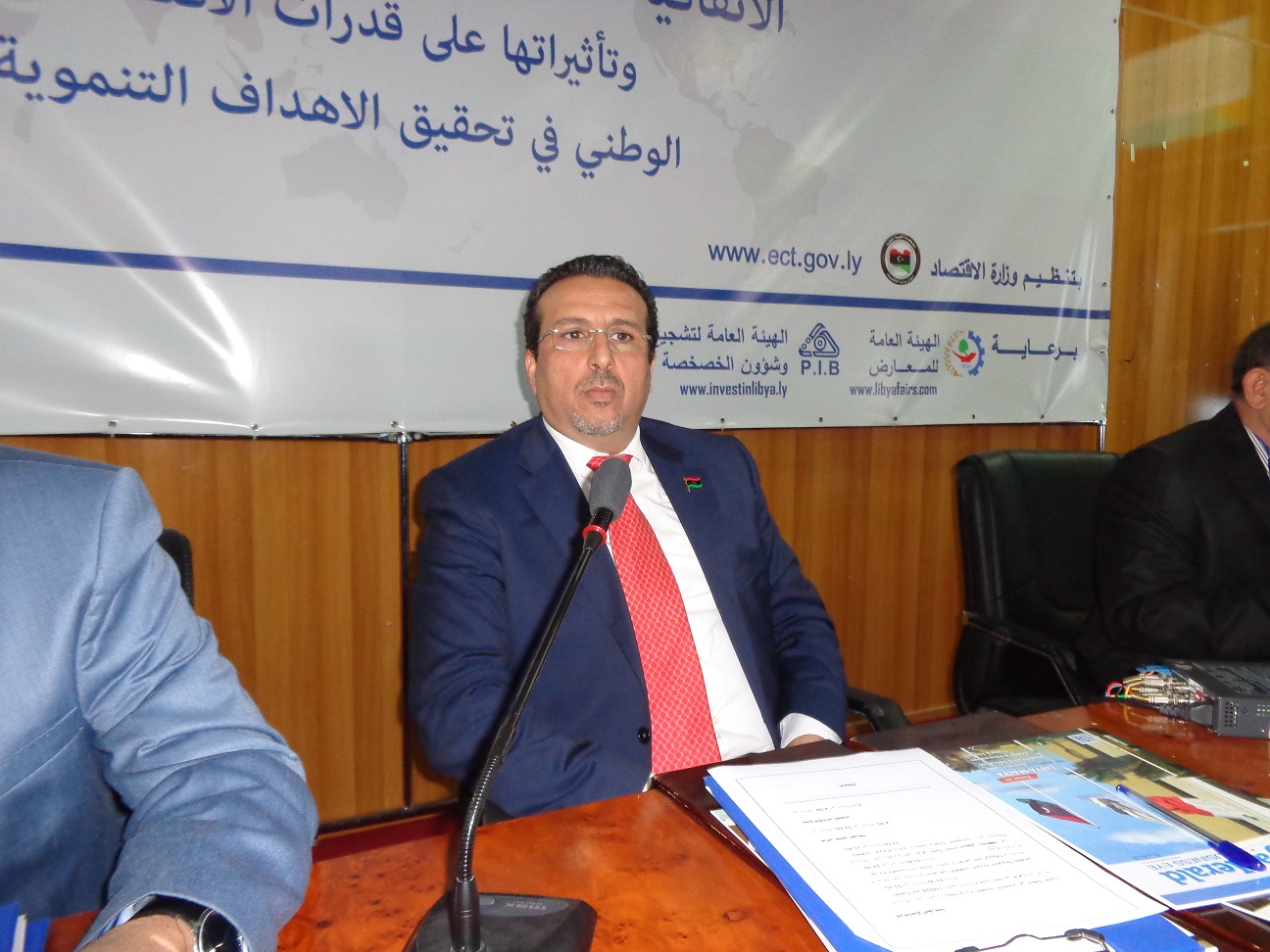By Sami Zaptia.

Tripoli, 2 January 2014:
A workshop on Libya’s external trade agreements was held at Tripoli International Fair today.
The workshop entitled . . .[restrict]”Bilateral and Regional Trade Agreements – their effects on the national economy’s capabilities in realizing development aims” was organized by the Ministry of Economy (www.ect.gov.ly) and sponsored by the Libyan Board of Fairs (www.libyafairs.com) and the Privatization and Investment Board (PIB) (www.investinlibya.ly).
Opening the workshop, Hassan Ben Taher, Consultant at the Ministry of Economy, said that “diversification is the main economic challenge and is on top of the development agenda facing Libya. The transformation of Libya’s economy to a sustainable basis means that the government has decided to set relationships with the rest of the world as well as with the private sector as well as academics”.
Ben Taher said that “the problem was not in the external trade agreements but it is in Libya’s economy. That is why Libya has not joined the World Trade Agreement (WTO)”, admitted Ben Taher. “We must prepare cadres that are capable of negotiating our WTO entry”, he added saying that the process was not easy to those not prepared for the process.
“There must be a plan to raise the standard of the local economy so that it is ready to join the WTO. Joining now could be harmful to our economy. We need to activate the “Competitiveness Council” hopefully in January 2014″. Ben Taher explained that if Libya did not have competitive sectors to protect, it could not negotiate for their protection.
“We must be aware of the negative effects on the private sector which will be affected in the forms of adjusted taxes and customs duties”.
“There are areas where we do not have a competitive advantage, for example, so we can remove customs duties, but there are areas where we have some competitiveness. We cannot compete overnight with economies that have been competitive for thousands of years. The removal of customs duties has to be staggered”, explained Ben Taher.
Examples of trade agreements that Libya was part of given at the workshop were: the Maghereb States Agreement, the Agreement with the EU, the Economic Partnership with Turkey and the Agadir Agreement. [/restrict]







